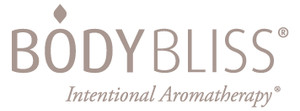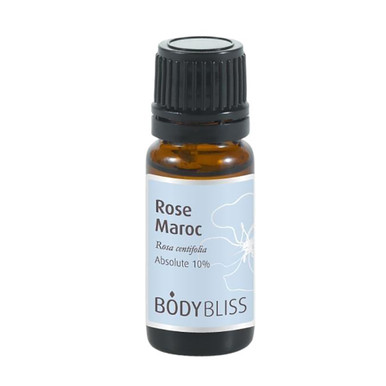Essential Oil of the Month: Rose Maroc
"What’s in a name? That which we call a rose, by any other name, would smell as sweet."
Romeo and Juliet by William Shakespeare.
Rose… “The Queen of Flowers,” as it is deservedly known and originally described by the Ancient Greek Poet Sappho in 600 BC, has been valued since ancient times for its beauty and connection to the heart – love, romance, self-love, grief, sadness, forgiveness…the list goes on and on. If it involves the heart, Rose is the answer. Its soothing properties are a balm to all matters of the heart.
“Bringing warmth to a soul grown cold through abuse or hurt, rose oil can touch the deepest despair, restoring the trust that makes it possible to love again.” -Gabriel Mojay (1)
Rose Maroc is sometimes referred to as Moroccan Rose, Rose de Mai, or Cabbage Rose. Its Latin name, centifolia, refers to its many petals (literally 100 leaves). Its designation to Morocco refers to where it has been grown, harvested, and distilled for centuries. There is an annual festival in the Moroccan Valley of the Roses at the end of the growing season when the Rose is celebrated with a parade, fireworks, and a street bazaar. The Moroccan Rose has been used throughout history for its myriad mood-enhancing and therapeutic properties as well as its delightful aroma.
Cleopatra loved roses. Known for her alluring beauty, she used rose petals in her milk baths and to keep her skin dewy and supple, she is said to have bathed her face and body in rosewater. Indeed, Rose is widely used today for its skin enhancing benefits, cherished not only for its exquisite aroma, but for its anti-inflammatory, antiseptic and hydrating effects as well.
Cleopatra also used the aphrodisiac qualities of a rose mist to seduce her lovers. The enticing Egyptian queen didn't know it but rose contains phenylethylamine, the same chemical produced in the brain when you're falling in love. This chemical triggers the release of neurotransmitters such as serotonin and dopamine, the “feel good” chemicals.
Truly, Ancient Romans were huge fans of the Rose. Fresh petals were scattered during banquets, on wedding beds, and placed in baths and in wine. Wreaths of roses were found at both weddings and funerals. Rosewater ran through fountains and rose petals were used to create deliciously scented puddings, love potions and medicines. Emperor Nero was so crazy about roses, he had silver pipes installed so that his dinner guests could be spritzed with rosewater. (A novel idea for your next gathering!)
In an ancient culinary blend of roses and wine, called rosatum, the flavor of roses enhanced the wine in which it was steeped. Pliny the Elder writes in his work Naturalis Historia (Natural History) that roses were used medicinally in lotions and poultices. In those times, steeping rose petals in wine may well have been a pleasant way to impart roses’ health-giving properties. The Greek physician Dioscorides used a pomade made by steeping rose petals in oil. In some of his writings, he claimed that rose tonic cooked in wine can be used as a treatment for headaches and diseases of the eyes, ears, mouth, and womb. (Don’t try this at home!)
Interestingly, rose oxide, which contributes to the smell of roses and rose oil, also contributes to the flavor of some fruits, including lychee, and some wines, such as gewurztraminer. In fact, rose hydrosol is sometimes added to red wines. (Note that rose absolutes and essential oils are not recommended for internal use unless authorized by a professional.)
Why is Rose Oil so Precious – and Expensive! Or how many roses does it take to make rose oil?
Depending on the method of extraction and type of roses, it takes tens of thousands of blossoms to yield one ounce of essential oil – as many as 60,000! It takes 10,000 roses to fill a single 5ml bottle – that’s one teaspoonful!
For those good with numbers, 4 tons of roses = 1 600 000 rose blossoms = 1 kg of rose oil.
This is why rose absolute is more expensive than many other popular essential oils. In addition to the sheer volume necessary, the process of harvesting and distillation is extremely time-consuming and costly. The growing period is typically only two or three months long. Flowers are handpicked before sunrise when the scent is strongest, and the extraction process begins immediately after.
While Rose may be one of the most expensive rare and precious oils, in my opinion it is worth every penny, especially if you’re feeling sad, lonely, or heartbroken.
“Stop and smell the roses” may be a cliché, but there is much research to bolster its meaning.
According to recent studies, topical application of rose oil resulted in lowered blood pressure, heart rates and cortisol levels, as well as feeling calmer and more relaxed after treatment. (2)
That's because roses produce wonderful mood-boosting endorphins. A study in the Journal of Physiological Anthropology exposed office workers to pink roses. The results showed that they brought significant physiological and psychological relaxing effects to the participants. (3)
Spiritually, Rose is one of the highest vibration oils one can find.
“It touches and stirs the spirit, sometimes even awakening the acknowledgment of divine mysteries, and of the glory of heaven.” - Valerie Worwood (4)
For a Sumptuous Cleopatra-inspired Rose Milk Bath: In a bowl, mix the dry ingredients, then add essential oils to blend until dry.
- 1 cup Dead Sea or Himalayan salt
- 1 cup Epsom Salts
- 1/2 cup Powdered Milk
- ¼ cup Baking Soda
- 5 to 10 drops Rose Maroc oil
When thoroughly mixed, use ½ to 1 cup of the blend in a warm bath. For added luxury and romance, sprinkle a few (1/4 cup or less) rose petals. (Keep in mind that you will have to remove the petals before draining the tub).
Now, pour yourself a glass of your favorite wine if you wish, light a candle, play some enchanting music, then lie back, and bask in the magic of the moment.
Our Favorite Rose Products
PRECAUTIONS: Though generally considered safe for external use, avoid in early pregnancy and, as with all essential oils, consult your physician if you have a medical condition or are taking medication.
(1) Mojay, 1997, Aromatherapy for Healing the Spirit, p. 113
(2) Hongratanaworakit T.; PubMed 2009 Feb;4(2):291-6.
(3) J Physiol Anthropol 33, 6 (2014)
(4) Worwood, 1999, The Fragrant Heavens, p. 271














